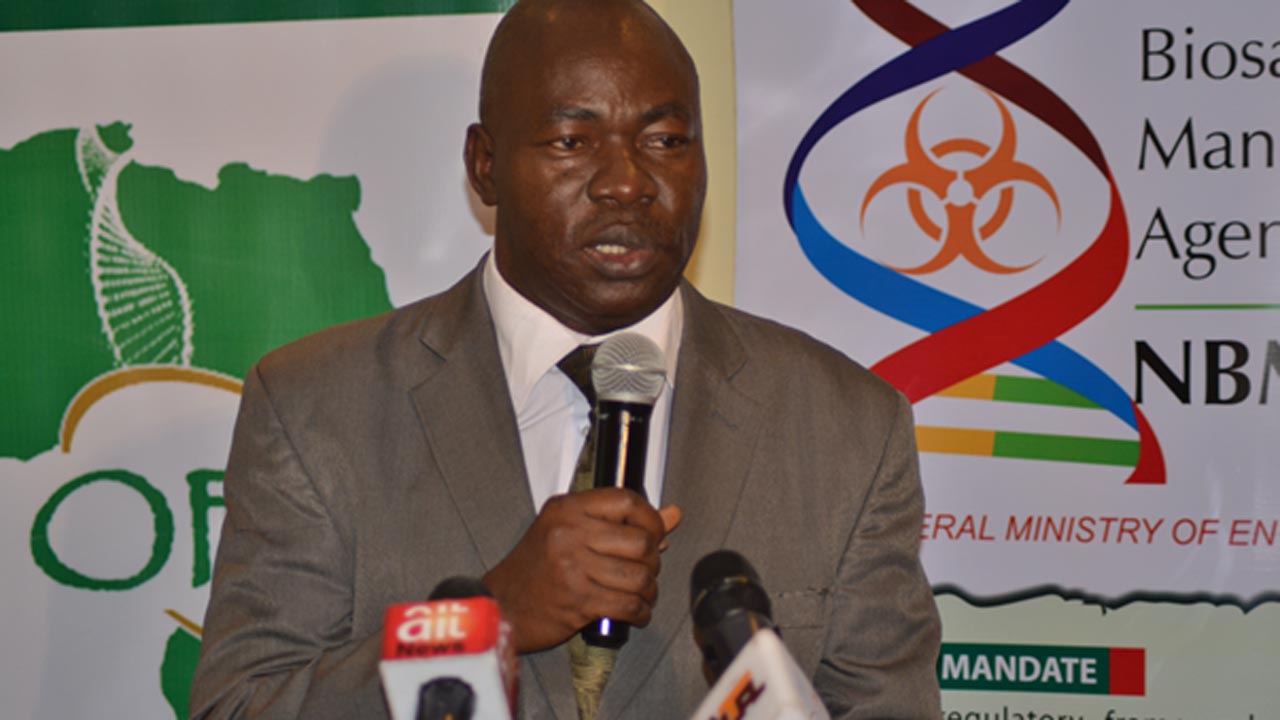Biosafety agency gives scorecard on effort to boost food security
The Director General (DG) of the National Biosafety Management Agency (NBMA), Rufus Ebegba, has said that one of the mandates of the agency is to use available technology to increase production and assist the federal government in meeting its food security mandate. Addressing journalists during the end of the year media chat in his office, […]

Rufus NBMA Boss
The Director General (DG) of the National Biosafety Management Agency (NBMA), Rufus Ebegba, has said that one of the mandates of the agency is to use available technology to increase production and assist the federal government in meeting its food security mandate.
Addressing journalists during the end of the year media chat in his office, Ebegba disclosed that the agency had faced so many challenges in the discharge of its duties within the year, but that they were committed to assisting the federal government in meeting its set target of food security.
The DG listed some of the challenges as the lockdown occasioned by the COVID-19 pandemic, poor funding, activism by Civil Society Organisations (CSOs) leading to litigations, insufficient vehicles for operational activities, among others.
However, the NBMA boss said despite the challenges they had been able to release at least three Genetically Modified Organism (GMO) products for commercial purposes: cotton, cowpea and maize.
He said many others were within the stage of confined field trial, adding that any product that was approved by the agency had been certified safe for the public.
Ebegba also explained that Tela maize will save farmers up to N268b annually on insecticides as the number of times insecticides would be applied would be reduced from 10 to just once or twice, a development he said would also eliminate health hazards associated with spraying.
He said, “We are an enforcement agency; it is to tell Nigerians that any product we release and approve for the public is safe. To ensure that risk assessment is carried out, so that before these products are released we are sure they are safe for the environment. Our responsibility is not necessarily to convince the Nigerian public on GMOs, but to assure them that these products are safe, no need to worry, panic and also to ensure that the government’s effort in food security is met.
“Farmers spend a lot of money purchasing chemicals, like the Tela maize, once it is in the market, instead of spraying up to 10 times, you will not spray more than once or twice, so it has reduced the amount of money used. There is also the health implication in spraying these chemicals. Some of the farmers fall sick and use more money to buy drugs; all these are reduced. So at the end of the day a lot of money is being saved.
“Three commercial products are now out, cotton, cowpea and maize, but for the confined field trial we have cassava. Let me say that confined field trials are experimental fields, many times they may succeed and at times may not.”
